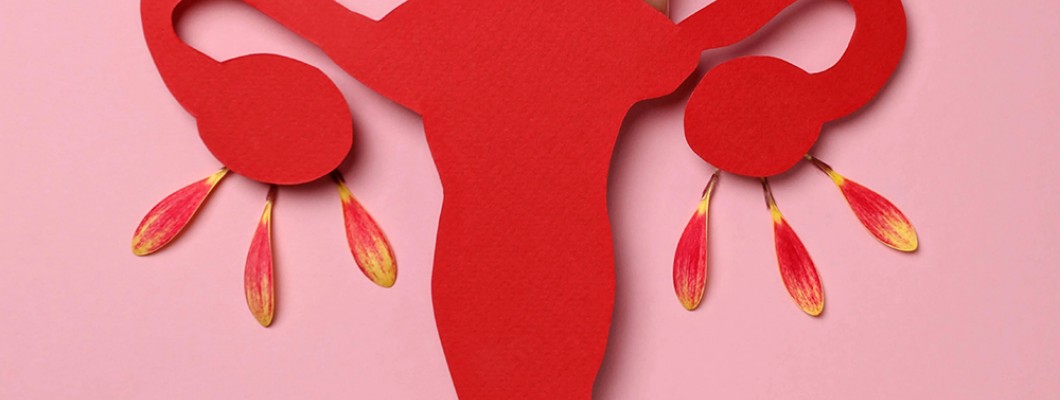
Life is naturally teeming with gorgeously fascinating cycles: the ebb and flow of the tides, the blooming and withering of a flower, the rhythm of a heartbeat, and—of course—your menstrual cycle.
The menstrual or reproductive cycle consists of 4 phases (some of them overlapping): the menstruation phase, the follicular phase, ovulation, and the luteal phase —all of which have a unique set of effects on your sex life and your sense of desire.
Understanding how these natural phases influence your experience of arousal, eroticism, and fertility can strengthen your connection with your body and deepen your understanding of your inner workings throughout the different fluctuations of your cycle.
Here, we break down everything you need to know about phase three: ovulation.
Understanding ovulation
Ovulation refers to the process whereby your body releases a mature egg from your ovary, which then survives for 12-24 hours in your fallopian tube with the hope of being fertilized by a relentlessly determined sperm.
Ovulation occurs on roughly the 14th day of a typical 28-day menstrual cycle, day 1 being the first day of your period. Of course, not all menstrual cycles are 28 days—some are shorter and some longer. As a general guideline, ovulation occurs about 14 days before the start of your next period. For example, if your cycle is 22 days long, you'll likely ovulate around day 8. And if your cycle tends to be 35 days long, you'll ovulate somewhere around day 21.
Of course, if you have irregular cycles, ovulation can be more difficult to pinpoint and you might want to look out for other signs, particularly if you’re trying to conceive, or trying not to. These signs might include: cramping on one side of the body, a rise in basal body temperature, cervical mucus that's slippery and sticky, light spotting, abdominal bloating, and a higher, softer cervix.
Ovulation and your hormones
Estrogen spikes during ovulation, as does oxytocin, AKA the love hormone. Both can facilitate sexual arousal, trust, and romantic attachment. In turn, rising estrogen levels stimulate the production of luteinizing hormone (LH), which triggers the release of the egg from the follicle (a follicle is a small fluid-filled sac located in the ovaries that contains an immature egg). One, or some combination of these hormones is likely responsible for the unmistakably higher sex drive that many people experience during ovulation. However, there is not a ton of concrete data or research out there, likely because of gendered biases in medical research.
After ovulation, the follicle transforms into the corpus luteum (a temporary collection of cells that forms on your ovary each month), which then secretes progesterone and some estrogen to prepare your uterus for a possible pregnancy. If fertilization does not occur, progesterone and estrogen levels then drop, leading to the eventual onset of menstruation again—and the cycle continues.
The hormonal fluctuations around ovulation can lead to mood swings, increased energy, and heightened emotions. While some people may experience elevated moods, horniness, and increased motivation, others can feel more irritable or anxious. Every body is different.
Sex and ovulation
Since you are most fertile during ovulation, the increase in sex drive and arousal could very well be an evolutionary response intended to increase chance of reproduction. Our bodies are smart, after all.
In addition to estrogen, testosterone too, surges around the time of ovulation—and the latter can directly enhance any increase in libido. Many women report feeling more sexually attractive and confident during this time, which can enhance their sense of pleasure—along with overall desire and willingness to engage in sexual activities. Heightened hormone levels can also increase sensitivity and receptivity in erogenous zones, potentially leading to more intense, pleasurable, and fulfilling sexual experiences. True story.
Icing on the cake: the combination of these hormonal changes often results in a heightened sense of emotional connection with partners too. The ovulation phase of your cycle can create an opportunity for deeper intimacy and bonding.
Ovulation and fertility
As previously mentioned, once a mature egg is released from the ovary into the reproductive tract, it remains there, ready and willing to be fertilized for 12-24 hours. Meanwhile sperm can survive for up to five days in the female reproductive system, increasing your chances of pregnancy further—you know, if that’s what you’re going for.
If you are trying to conceive, having sex during this fertile window increases your chances of successful fertilization. On the other hand, if you’re trying to avoid pregnancy, it’s important to use contraception very consistently during this time (2-5 days to be safe, and to account for the lifespan of a sperm), as ovulation provides the highest likelihood of becoming pregnant. Tracking ovulation through the fertility awareness method (FAM), or ovulation predictor kits can be a great help in planning or preventing conception.
Bottom line: everyone will have slightly different experiences with regard to sex and their menstrual cycle. Whether procreation is in your eventual life plan or not, coming to a meaningful understanding of the fluctuations in your cycle can change everything. Cultivating a deeper and more intimate understanding of your body isn’t just the first step to becoming sexually empowered AF; it’s also an essential element of overall wellbeing.











6 Comment(s)
Regular visits listed here are the easiest method to appreciate your energy, which is why why I am going to the website everyday, searching for new, interesting info. Many, thank you
Yes. Great Journal Blog. It hard it find best blog same here!!
Disinfection Services in Dubai | Mazmo UAE
Call flick now to set up your disinfection services today and kill 99.99% of germs. Our services will protect your home, office, or workplace protected from viruses. Competitive pricing. For all deep disinfection services in Dubai, including covid-19 decontamination, call an expert Mazmo UAE.
Waow this is quite pleasant article, my sister love to read such type of post, I am going to tell her and bookmarking this webpage. Thanks
I would like to thank you for the efforts you have made in writing this article. I am hoping the same best work from you in the future as well. In fact your creative writing abilities has inspired me to start my own BlogEngine blog now. Really the blogging is spreading its wings rapidly. Your write up is a fine example of it.
I am all that much satisfied with the substance you have specified. I needed to thank you for this extraordinary article.
Great article with excellent idea!Thank you for such a valuable article. I really appreciate for this great information..
Leave a Comment